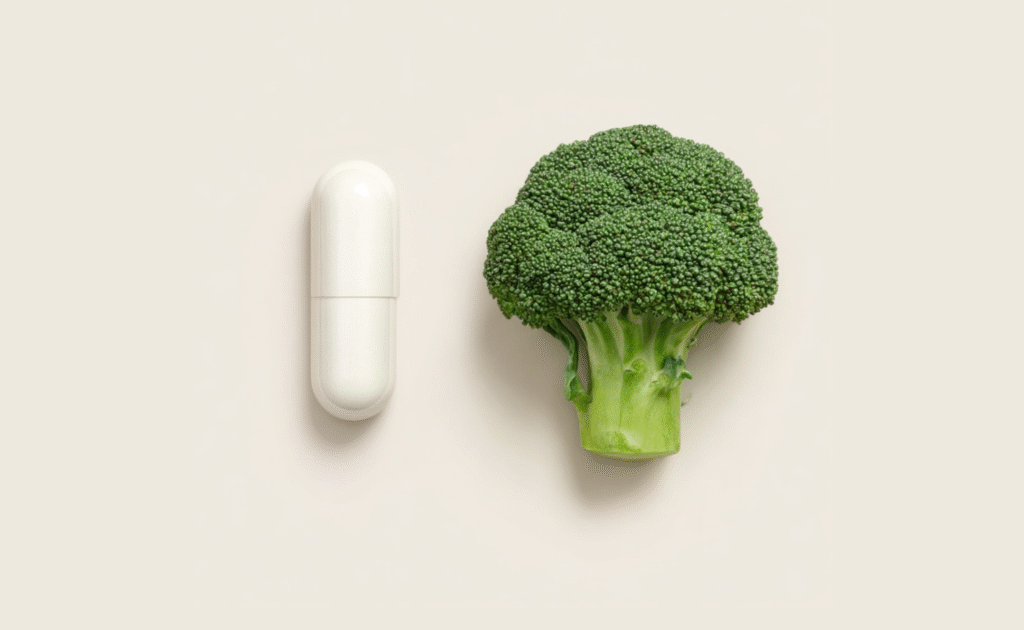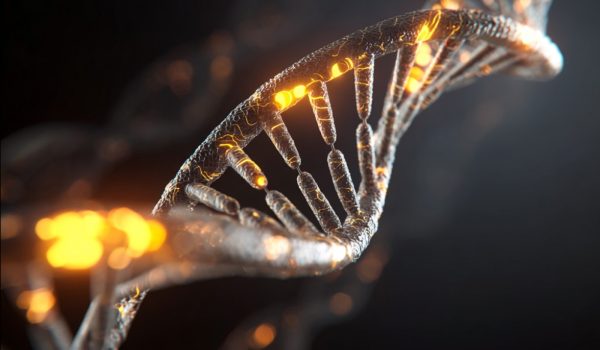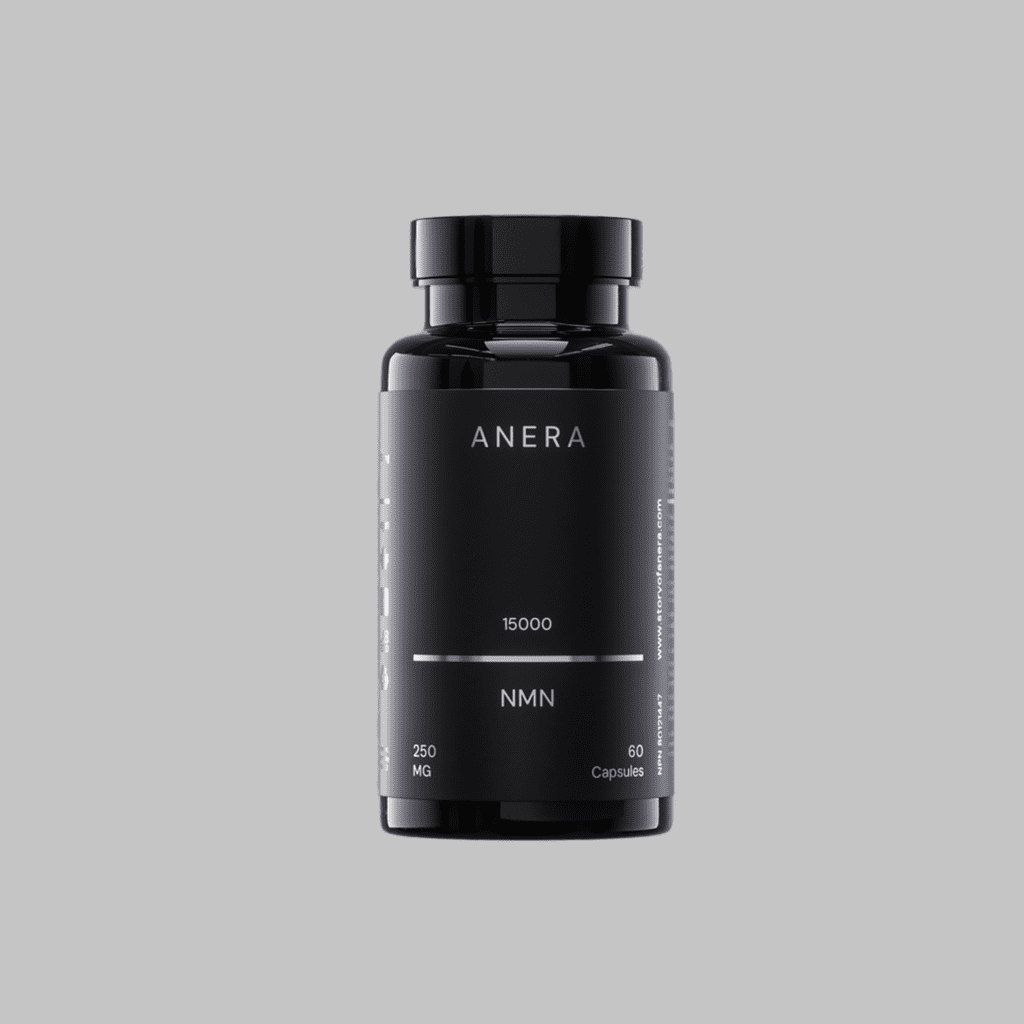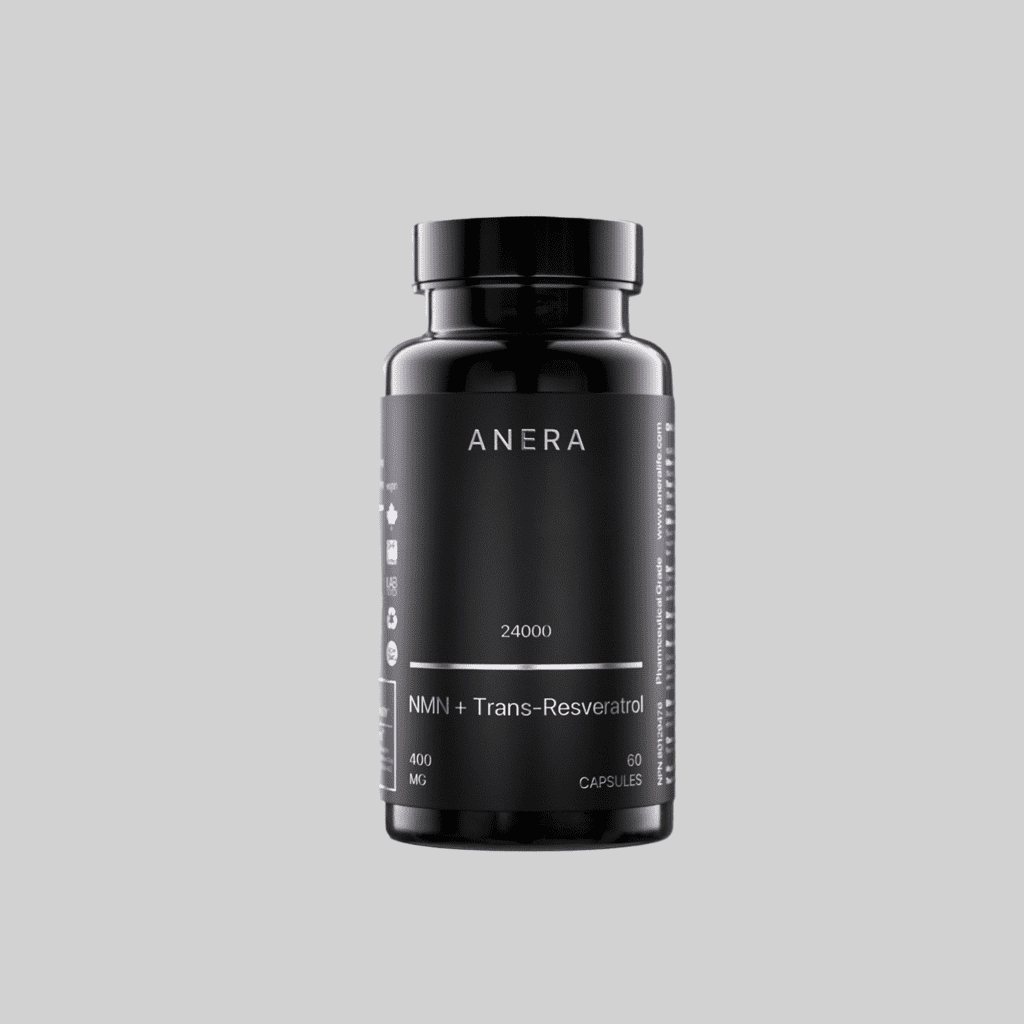Nicotinamide adenine dinucleotide (NAD+) is a vital coenzyme found in every living cell. It fuels cellular energy production, DNA repair, and metabolic health. Unfortunately, NAD+ levels decline steadily with age, dropping by as much as 50% by the time you reach middle age. This decline is linked to fatigue, slower recovery, reduced cognitive function, and the visible effects of aging.
The good news? You can increase NAD+ levels naturally through everyday lifestyle changes. From the foods you eat to how you sleep, small adjustments can make a big difference in how your body produces and preserves NAD+.
We believe in combining modern supplement science with holistic living. In this article, we’ll explore five research-backed strategies to boost your NAD+ levels naturally, plus bonus tips to protect your long-term cellular health.
1. Maintain a Healthy Diet
The foundation of natural NAD+ support begins with your diet. The right foods provide precursors, cofactors, and antioxidants that enhance NAD+ production and protect cells from oxidative stress.
Eat NAD+-Boosting Foods
Some of the best NAD+ boosting foods include:
- Leafy greens (spinach, kale, broccoli): Packed with antioxidants that support mitochondrial health.
- Avocados: Rich in niacin (vitamin B3), a key NAD+ precursor.
- Mushrooms & edamame: Provide polyphenols and amino acids essential for energy metabolism.
- Whole grains & seeds: Supply B-vitamins needed for NAD+ synthesis.
Together, these foods form the building blocks for cellular energy production and longevity.
To increase NAD+ levels naturally through diet, eat foods like broccoli, spinach, mushrooms, avocado, and whole grains. These nutrient-rich foods support mitochondrial function and provide precursors for NAD+ synthesis. Avoid excess sugar and alcohol, which deplete NAD+ levels and stress the body’s repair systems.
Include Tryptophan-Rich Foods
Tryptophan, an amino acid found in turkey, chicken, seeds, and dairy, converts into nicotinamide adenine dinucleotide through the kynurenine pathway. It also supports serotonin production, meaning these foods can benefit both mood and metabolism.
Limit NAD+-Depleting Foods
Refined sugar, ultra-processed snacks, and excessive alcohol reduce NAD+ by forcing your body into constant repair cycles. Replacing these with whole-food options helps maintain stable energy and cellular resilience.
Relevant art – Food vs Supplement: Can You Get Enough NMN Naturally?
2. Practice Intermittent Fasting or Calorie Restriction
One of the most effective strategies to boost NAD+ naturally is fasting. When you restrict food intake, your body activates sirtuins, longevity proteins that depend on NAD+.
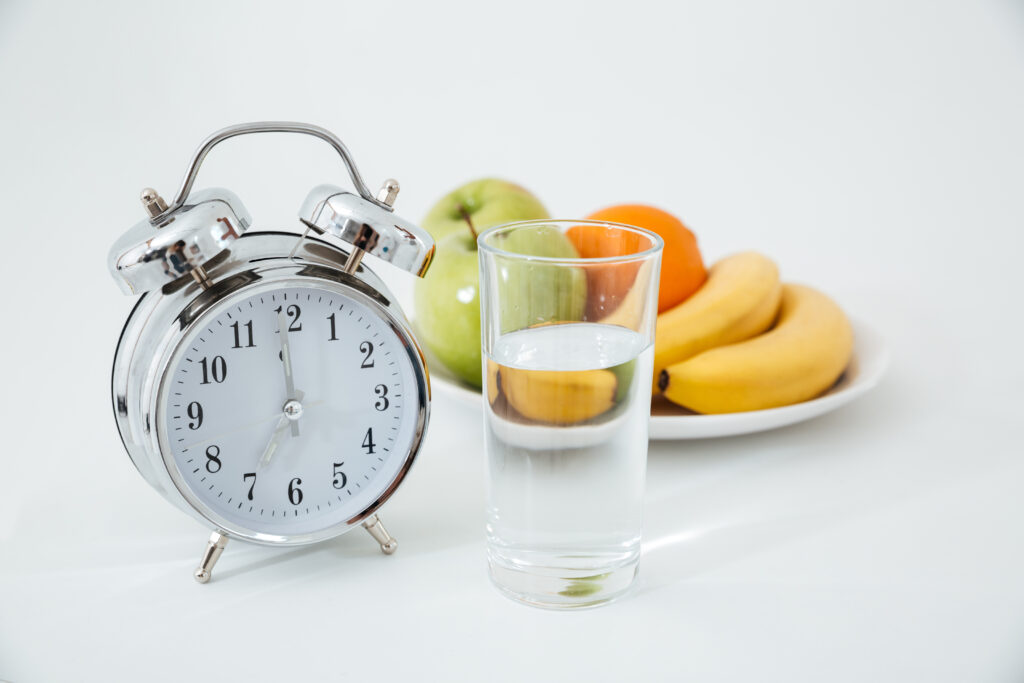
Research shows intermittent fasting can enhance mitochondrial function, improve insulin sensitivity, and extend lifespan in animal studies. These benefits translate into better metabolic health in humans.
Intermittent Fasting Tips
- 12–14 hour fast: Beginner-friendly approach (e.g., finish dinner by 7 pm, eat breakfast at 9 am).
- 16:8 fasting: Popular routine fast for 16 hours, eat in an 8-hour window.
- Stay hydrated: Water, green tea, and black coffee are fasting-friendly.
Intermittent fasting increases NAD+ levels by stimulating sirtuins and cellular repair. Start with a 12–14 hour fast, then extend to 16:8 if comfortable. Staying hydrated supports energy and makes fasting easier.
Why Fasting Works
During fasting, your body reduces reliance on glucose and shifts toward fat metabolism. This metabolic switch preserves NAD+ for repair processes, strengthens mitochondria, and activates pathways linked to anti-aging and longevity.
3. Exercise Regularly
Movement is one of the most reliable ways to boost NAD+ levels. Exercise not only stimulates NAD+ synthesis but also reduces oxidative stress, a major drain on cellular health.
Aerobic Exercise
Cardio activities like running, cycling, or swimming increase mitochondrial biogenesis the creation of new mitochondria. This process requires NAD+, encouraging your body to produce more.
Aerobic exercise, such as running or cycling, boosts NAD+ by enhancing mitochondrial function and energy production. Just 30 minutes of cardio most days can improve stamina and cellular health.
Strength Training
Resistance exercise activates muscle repair pathways that depend on NAD+ and sirtuins. Building muscle also improves glucose regulation, reducing NAD+ depletion over time.
Strength training increases NAD+ by improving muscle metabolism and repair. Two to three weekly sessions support mitochondrial health, energy, and resilience.
Consistency Matters
While intensity has its benefits, research suggests consistency is more important. Regular, moderate exercise sustains NAD+ production better than infrequent, extreme workouts.
4. Prioritize Quality Sleep
Sleep is not just rest it’s when your body regulates circadian rhythms, restores energy, and synthesizes NAD+. Poor sleep disrupts NAD+ metabolism, leaving you fatigued and unbalanced.

How Sleep Affects NAD+
NAD+ interacts with circadian clock proteins, meaning that irregular sleep patterns can reduce cellular repair. Conversely, consistent, restorative sleep helps maintain optimal NAD+ for metabolism and longevity.
Sleep Optimization Tips
- Set a regular bedtime: Aligns circadian rhythm.
- Limit blue light: Reduce screen use 1–2 hours before bed.
- Create a sleep-friendly space: Dark, quiet, and cool.
- Mind relaxation: Meditation, reading, or deep breathing.
Quality sleep restores NAD+ levels by aligning circadian rhythms with metabolism. Aim for 7–9 hours per night, limit screens before bed, and create a dark, cool sleeping environment.
5. Supplement Wisely (NMN, NR, or NAD+ Precursors)
Even with a perfect lifestyle, natural NAD+ production declines with age. This is where NAD+ supplements such as NMN (nicotinamide mononucleotide) and NR (nicotinamide riboside) come in.
NMN Supplement Benefits
- Direct precursor to NAD+
- Supports energy production and anti-aging pathways
- Enhances metabolic health and DNA repair
- Shown in studies to improve endurance and vascular health
NMN vs NR
- NMN: Converts directly into NAD+ inside cells.
- NR: Another precursor but follows a longer conversion pathway.
Both are effective, but NMN is gaining more attention for its efficiency and promising results in research.
NMN and NR supplements increase NAD+ levels naturally by providing direct precursors. NMN converts efficiently into NAD+, supporting energy, longevity, and recovery. Always consult a healthcare professional before supplementing.
Bonus Tips for Maximum NAD+ Support
- Reduce chronic stress: Stress hormones deplete NAD+ and weaken mitochondrial health.
- Stay hydrated: Water supports enzymatic reactions that depend on NAD+.
- Avoid alcohol excess: Alcohol consumes NAD+ during detoxification, leaving less available for repair.
- Mindful breathing or meditation: Supports balanced metabolism and cellular recovery.
Conclusion
To increase NAD+ levels naturally, focus on five pillars: diet, fasting, exercise, sleep, and smart supplementation. Combining these methods enhances cellular energy, metabolic health, and longevity.
At Anera Life, we recommend pairing natural lifestyle strategies with trusted NMN supplements for optimal results.
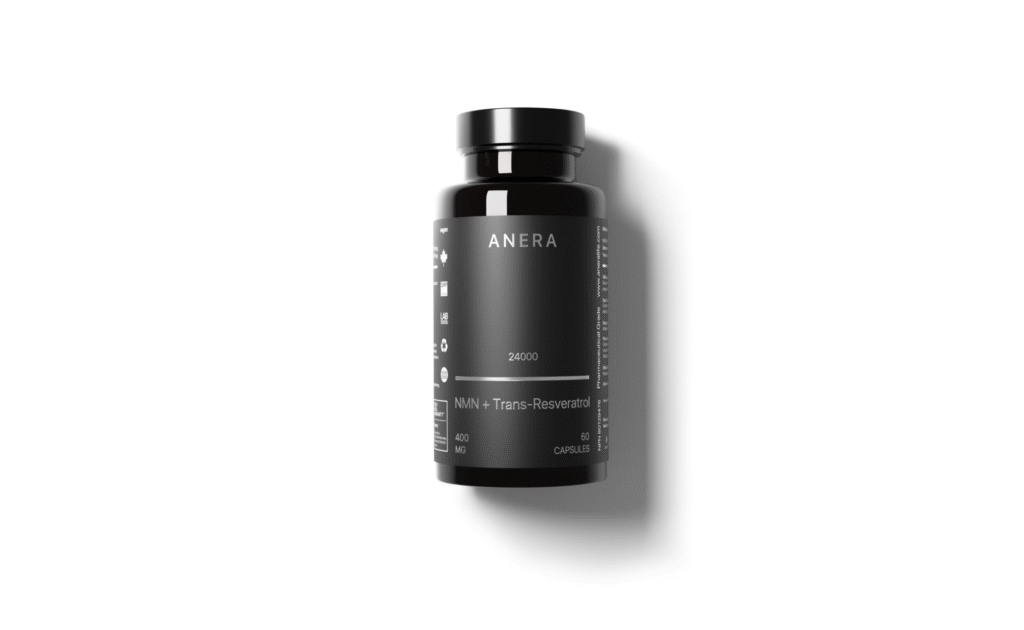
Support your NAD+ levels with Anera Life NMN supplements
FAQ
Q1: How can I increase my NAD+ naturally?
You can increase NAD+ levels naturally through diet, fasting, exercise, sleep, and NAD+ precursors like NMN. These habits improve mitochondrial health, boost metabolism, and support longevity.
Q2: Which food has the highest NAD?
Foods like turkey, chicken, mushrooms, avocado, and whole grains provide precursors that boost NAD+. While no food contains NAD+ directly, these support the body’s synthesis.
Q3: Is NAD+ good for pregnancy?
NAD+ is important for metabolism and energy, but pregnant women should avoid supplements unless prescribed by a doctor. Always consult your healthcare provider before taking NMN or NR.
Q4: Does fasting increase NAD+?
Yes. Fasting activates sirtuins, proteins that depend on NAD+, helping boost natural NAD+ levels. Even short daily fasts of 12–16 hours support energy and metabolic health.
